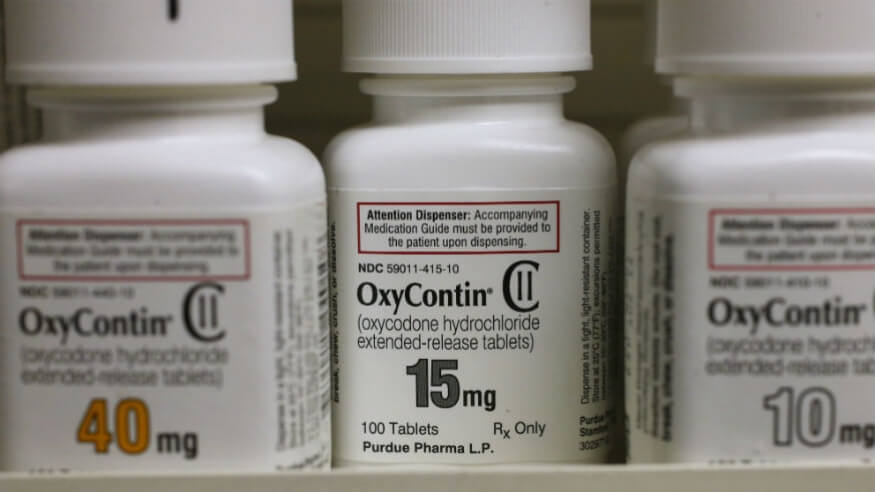People have differing views on one of Philadelphia City Council’s more high-profile votes last week: either a dirty, nefarious industry scored a victory, or a proposal intended to fight addiction that really just hampered physicians and the city lost.
The vote in question was on a bill that would ban gifts to doctors in Philly from sales reps; require sales reps to register with the city, and allow the city’s Health Department to review pharma marketing materials, among other provisions.
It failed to pass, 9-5. Two City Council members, Blondell Reynolds Brown and Cherelle Parker, abstained from the vote due to being members of the Independence Blue Cross Public Policy and External Affairs Advisory Board.
“I thought it was a no-brainer,” City Councilwoman Cindy Bass said. “I can’t imagine how many people could not have supported this, I cant understand why this got the number of no votes that it received. This is something we could have done to take back some level of control, and we did not do it.”
As with many subjects around the opioid epidemic, passions are strong. Philadelphia is one of many U.S. cities now suing major pharmaceutical corporations in civil court alleging they share some responsibility for the addictions and fatal overdose rates that have caused thousands of deaths in Philadelphia, along with spikes in homelessness and drug crime. Fatal overdose rates in Philadelphia in recent years have vastly exceeded homicide rates, with more than 1,000 deaths in 2018.
Bass, along with co-sponsor Councilman Bill Greenlee, introduced the bill on Oct. 11, which they said was backed up just months later by a Jan. 2018 study in the Journal of the American Medical Association (JAMA) which found “increased county-level opioid marketing was associated with elevated overdose mortality.”
Dr. Patrick J. Brennan, chief medical officer and senior vice president of the University of Pennsylvania Health System, testified in support of the bill at Council on Feb. 7.
“Decades of study make it clear that meetings between doctors and sales rep lead to changes in the way physicians prescribe medications, and let’s be clear, these meetings are about sales, not about education,” Brennan said, pointing out that Penn Medicine banned pharma gifts to physicians 13 years ago, but still has healthy collaborations with the industry. “We prohibit gifts however small because independence, transparency and trust are crucial in the patient-provider relationship.”
But Christopher Molineaux, president and CEO of Life Sciences Pennsylvania, said the provisions of the bill were deeply flawed.
He called the proposed registration fee for sales reps “a tax” that would affect reps selling all drugs, not just opioids; said pharma marketing is already reviewed by the FDA, and argued that the implication behind a gift ban of rampant quid pro quos in the medical industry were offensive.
“They’re basically suggesting these doctors can be bribed with a coffee mug, pen or a bagel into prescribing these addictive, dangerous drugs. I think it’s insulting to physicians,” Molineaux said. “I have a lot more faith in our physicians than that.”
Councilman Greenlee attributed the bill’s failure in part to what he called “threats” from the pharma industry to pull out of conventions in Philadelphia.
“I think that was really what did it. The visitors people were very concerned that pharma was making those threats … I think pharma’s goal was just to defeat the bill, and they knew they couldn’t defeat it without other people intervening, so they shook up all the visitors people and they put out that they were concerned we were going to lose millions of dollars and tourism,” Greenlee said, adding the bill had exemptions for conventions. “I think it was an empty threat. … It was very disappointing that we didn’t get it but I hope it raised some awareness, if nothing else, and people will understand that it’s an issue here, and maybe people will be careful when it comes to precriptions.”
Molineaux, who is also on the board of the Philadelphia Convention & Visitors Bureau’s Advisory Board of the Life Sciences Congress, noted that exemption or not, the bill would have make Philly seem hostile to life science conventions – like the BIO (Biotechnology Innovation Organization) International convention, scheduled to come to Philadelphia in June and estimated to bring 18,000 people and a positive economic impact of $50 million to Philly.
“The fact the bill exists sends a message to these enormous trade association like BIO, this city is probably not the best for your industry,” Molineaux said. “It makes Philadelphia look like a city that is unfriendly to the life sciences community. That is not a threat, it’s an observation.”


























